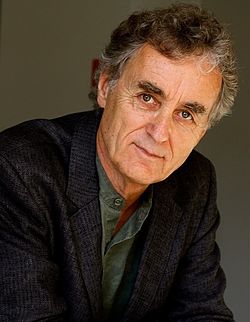Fritjof Capra Quote
There is another way in which Arne Naess characterized deep ecology. The essence of deep ecology, he wrote, is to ask deeper questions (quoted by Devall and Sessions, 1985, p. 74). This is also the essence of a paradigm shift. We need to be prepared to question every single aspect of the old paradigm. Eventually, we will not need to abandon all our old concepts and ideas, but before we know that, we need to be willing to question everything. So, deep ecology asks profound questions about the very foundations of our modern, scientific, industrial, growth-oriented, materialistic worldview and way of life. It questions this entire paradigm from an ecological perspective: from the perspective of our relationships to one another, to future generations, and to the web of life of which we are part.
There is another way in which Arne Naess characterized deep ecology. The essence of deep ecology, he wrote, is to ask deeper questions (quoted by Devall and Sessions, 1985, p. 74). This is also the essence of a paradigm shift. We need to be prepared to question every single aspect of the old paradigm. Eventually, we will not need to abandon all our old concepts and ideas, but before we know that, we need to be willing to question everything. So, deep ecology asks profound questions about the very foundations of our modern, scientific, industrial, growth-oriented, materialistic worldview and way of life. It questions this entire paradigm from an ecological perspective: from the perspective of our relationships to one another, to future generations, and to the web of life of which we are part.
Related Quotes
About Fritjof Capra
Capra is the author of several books, including The Tao of Physics (1975), The Turning Point (1982), Uncommon Wisdom (1988), The Web of Life (1996), and The Hidden Connections (2002), and co-author of The Systems View of Life (2014).
